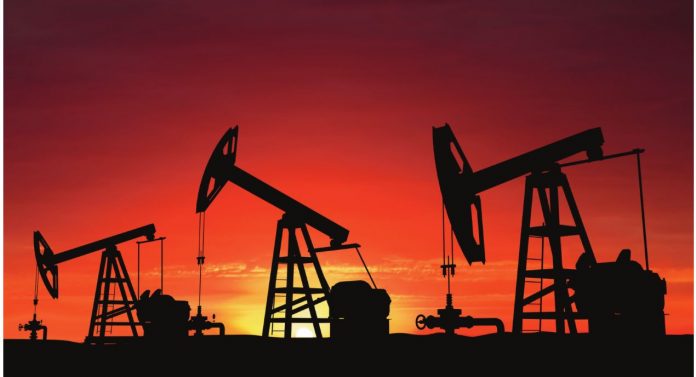NEW YORK: Oil prices were little changed on Thursday, erasing earlier losses after the operator of Britain’s Forties pipeline in the North Sea said it was expected to restart in early January after repairs over Christmas.
Forties is the largest of the five North Sea crudes that underpin Brent, a benchmark for oil trading in Europe, the Middle East, Africa and Asia.
Brent futures were up 20 cents, or 0.3 percent, at $64.76 a barrel by 12:32 p.m. EST (1732 GMT), while U.S. West Texas Intermediate crude was up 24 cents, or 0.4 percent, at $58.33 per barrel.
Despite the small increases on Thursday, both benchmarks were trading at their highest since Dec. 12 after rising most days since the start of the Forties shutdown.
“Based on current estimates the company expects to bring the pipeline progressively back to normal rates early in the new year,” Ineos, the privately held Swiss chemical company that operates the Forties pipe, said in a statement Thursday.
The system, which carries around 450,000 barrels per day (bpd) of crude to Britain, along with a third of the UK’s total offshore natural gas output, was closed after a routine inspection revealed a crack in an onshore section.
Oil prices were supported in part by falling crude inventories in the United States but capped by output that is fast approaching 10 million bpd, a level only surpassed by Saudi Arabia and Russia.
Both crudes gained around 1 percent during their previous sessions, lifted by official data showing a 6.5 million-barrel fall in U.S. crude inventories in the week to Dec. 15 to 436 million barrels, the lowest since October 2015.
Countering this was another increase in U.S. crude oil production, while a rise in gasoline stocks pointed to a slowdown in demand.
“The rally which has defined H2 looks to have run out of steam as the year draws to a close, and we might be hard pressed to say where further upside can come from at this point, barring some unforeseen supply outage,” JBC Energy said in a note.
The energy minister of Saudi Arabia, the world’s top crude exporter and OPEC’s de-facto leader, said it would take more time to rein in global oversupply, which was created by strong global production increases in the years up to 2015.
“We expect the first few months of 2018 to be either flat or a build (in inventories), as it is typically the case with the seasonality in the oil market,” Khalid al-Falih told Reuters on Wednesday.




